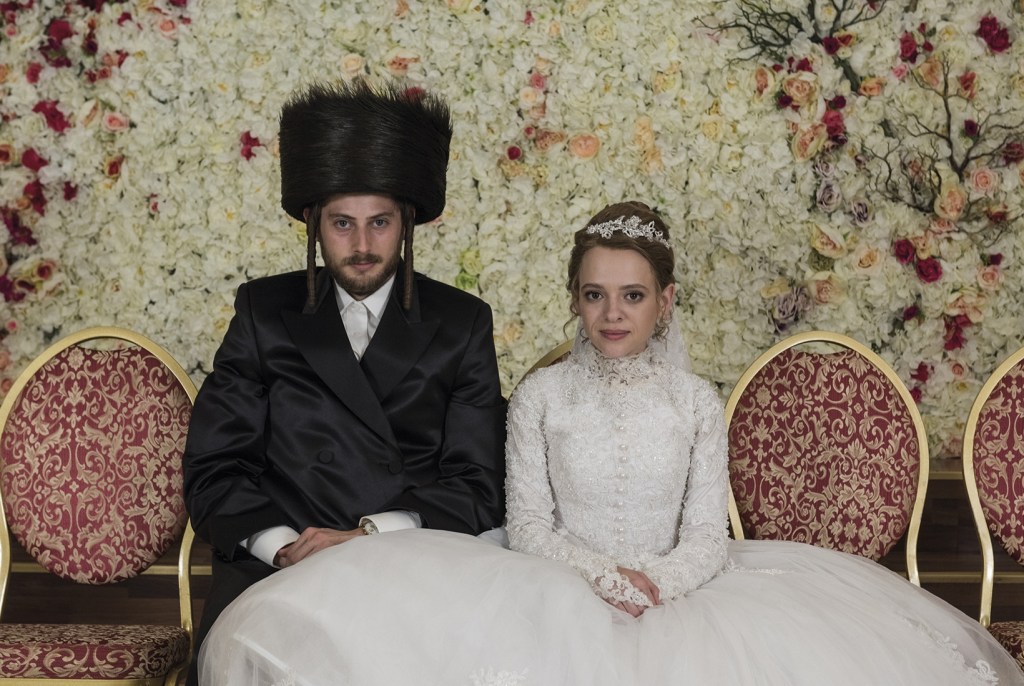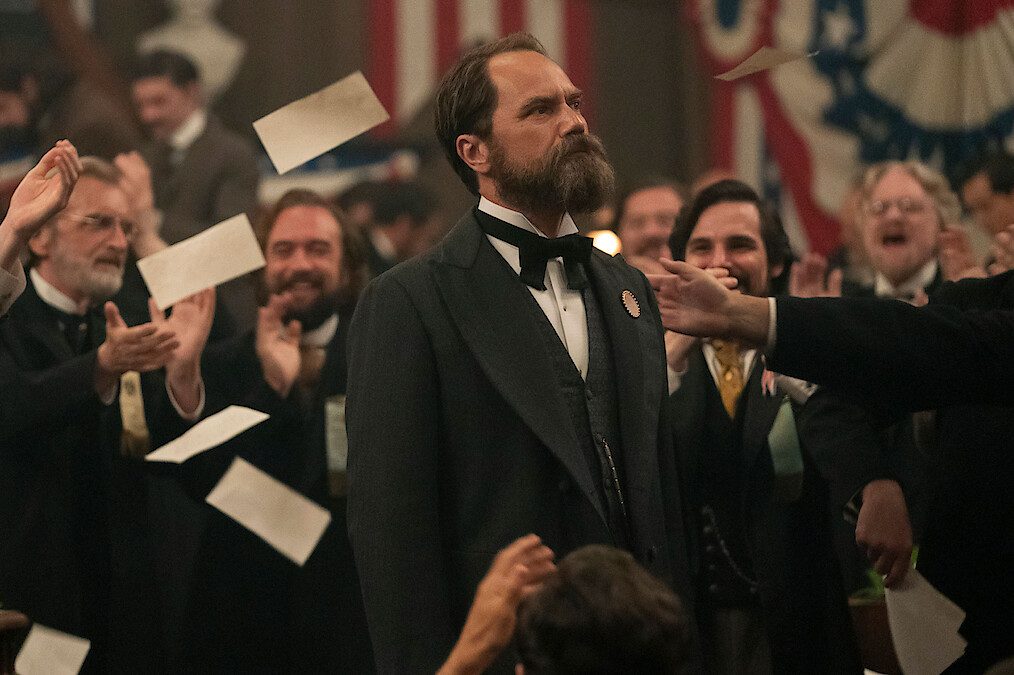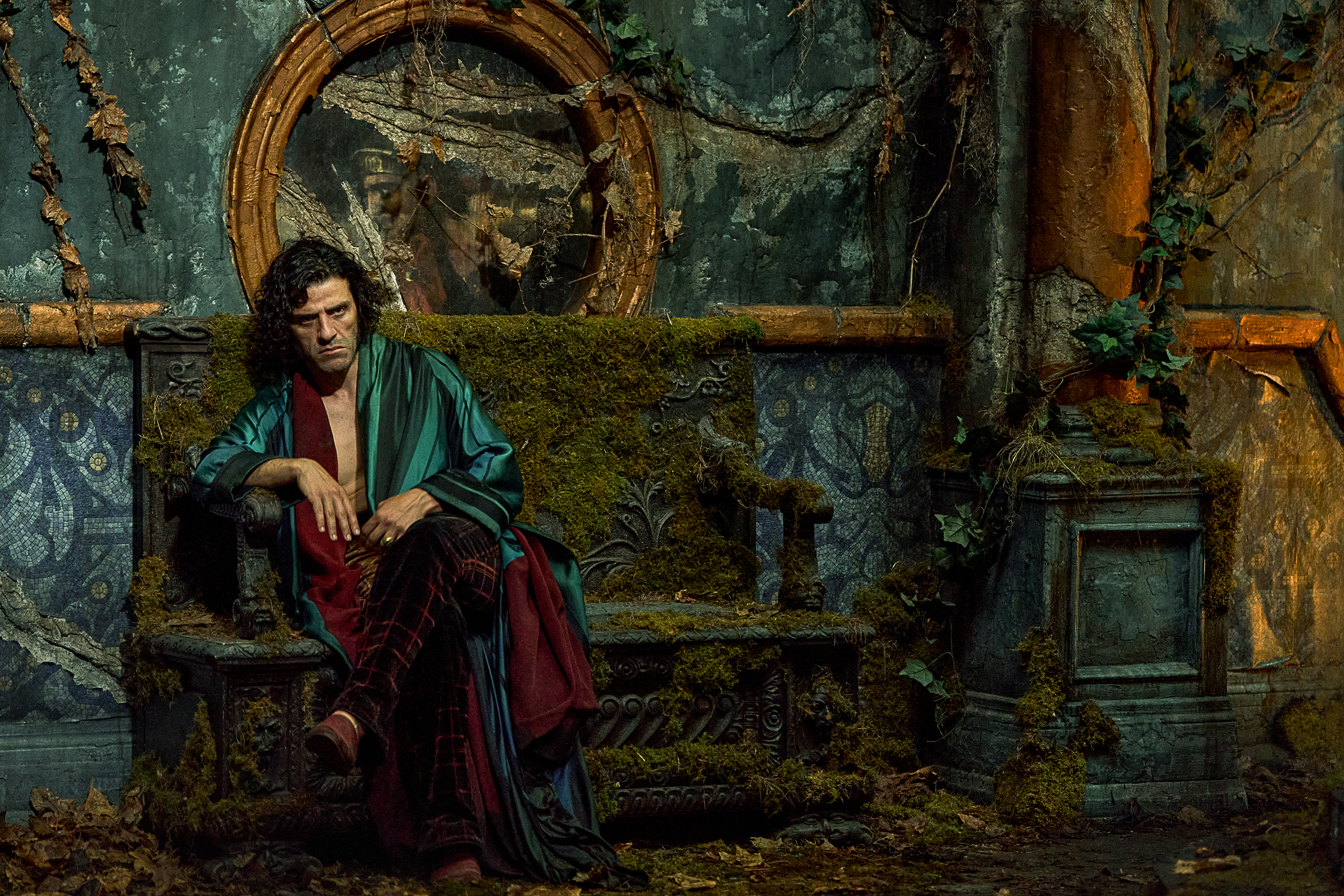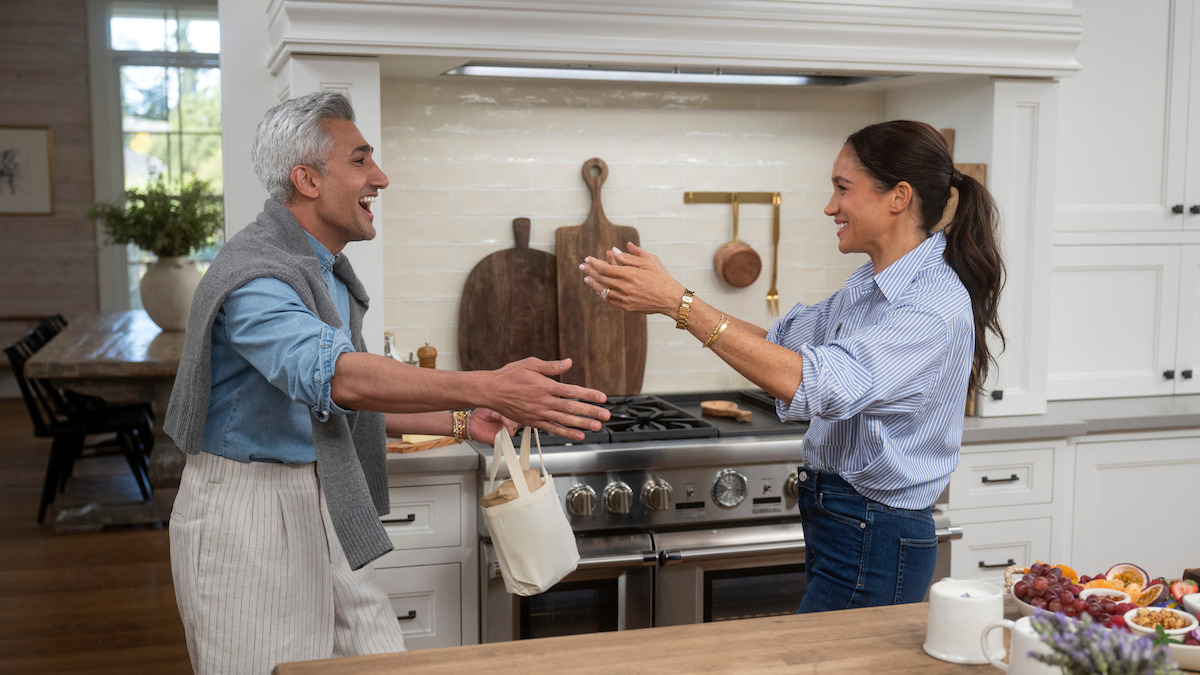When I lived briefly in East London’s Stamford Hill neighborhood I was mesmerized by the huge fur hats (shtreimel) worn by the local Hasidic Jews, and the wigs worn by their wives, and the almost tubercular pallor of their children. I often wondered how such a remote, aloof and archaic sect could possibly relate to 21st-century London. The answer, of course, was that they didn’t: they were like ghosts from another age, walking the same streets but not of this world. I wished I could get a glimpse of their private lives — and now, thanks to Unorthodox (Netflix), we all can.
Loosely based on a memoir by Deborah Feldman, it tells the story of 19-year old Esther ‘Esty’ Shapiro (Shira Haas) who flees her ultra-orthodox Jewish sect in Williamsburg, Brooklyn, for a new life in very secular Berlin. We begin in medias res with the flight, then little by little, through flashbacks, we piece together why.
Not that it’s exactly a puzzle. As a woman in such a sect you are essentially a baby-making machine on a mission — apparently — to replace the six million Jews killed in the Holocaust. Within minutes of celebrating your arranged marriage, you’re expected to start breeding with your unfamiliar, unworldly and almost inevitably chauvinistic husband; then, when you’re done, you start all over again.
For blokes, I imagine, it’s a pretty good deal: cool kit, lots of quality man time, no feminist nonsense. But you can see why if, like Esty, you’re an intelligent, ambitious woman with a hinterland (books, music) plus a medical problem that makes it painful to consummate your marriage, it might not be the ideal scenario.
Then again, groovy, liberated, multicultural Berlin is pretty insufferable too: all these smug music students from impeccably diverse backgrounds smirking delightedly about how back home in Nigeria of course they’d never be allowed to enjoy an openly gay relationship. It’s one of the qualities, I think, which puts this series a cut above your usual ‘yet another oppressed but feisty woman strikes a blow against the patriarchy’. Nothing is too pat and obvious.
For example — spoiler alert — Esty has been taking secret music lessons. The cosy narrative trajectory (this is very much a fictionalized take on Feldman’s memoir) would be to have her win a scholarship to the Berlin conservatoire where all her new friends are. But as one of her friends points out with brutal frankness — an Israeli, true to type — while she might play well enough for bar mitzvahs, she’s not anywhere in the league of the virtuosi on the course, each of whom has put in thousands of hours to get where they are. Earlier, Esty plays for sympathy by mentioning that most of her ancestors died in the Holocaust. ‘So did half of Israel’s,’ says the Israeli girl, boredly.
Haas is brilliant as Esty, the waifish, calculating ingénue, but some of the Hasidim are fleshed out nicely too — such as the spivvy Moishe, a chain-smoking gambler who also briefly fled the sect, only to return, bruised, cynical, worldly-wise. The Brooklyn Jewish scenes are all so plausibly done — the purification rituals; the wedding; the community’s female marital relations adviser brightly explaining how Esty can overcome her vaginismus with the help of a packet of dildos arranged, like spanners, in ascending size order — I assumed they must have been acted by real Hasidim. But no, all the main cast members are just normal actors giving superbly convincing, unobtrusive performances.
Sally Rooney’s Normal People is the women’s book group must-read which I’ve been warned I’ll loathe because it’s so maddeningly right-on and arch (‘He told her she should try reading The Communist Manifesto, he thought she would like it, and he offered to write down the title for her so that she wouldn’t forget. I know what The Communist Manifesto is called, she said.’). But the TV series — now available in its entirety in 12 episodes — on Hulu is very charmingly done, a soft-focus portrait of an innocent, provincial Ireland that probably doesn’t exist any more, with two delightful central performances by the two teenage lovers: Daisy Edgar-Jones as Marianne and Paul Mescal as Connell.
I’ll be honest, though, I’m much more drawn to a History channel series I’ve just discovered via Channel 4’s Gogglebox. It’s called Kings of Pain and comprises two idiots who set out to get bitten and stung by as many deadly creatures as possible — hornets, bullet ants, scorpions and so on — so they can tell us which hurts most. Possibly this is the real reason coronavirus was sent to us: a bit like God’s punishment on Sodom and Gomorrah, it’s a sign that Western civilization has reached a point of such crazed decadence it can no longer be permitted to survive.
This article was originally published in
The Spectator’s UK magazine. Subscribe to the US edition here.

























